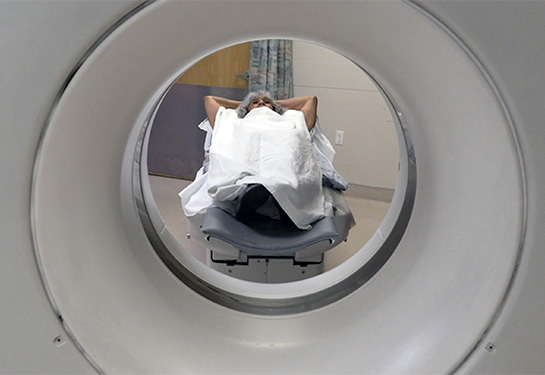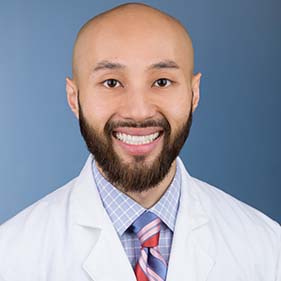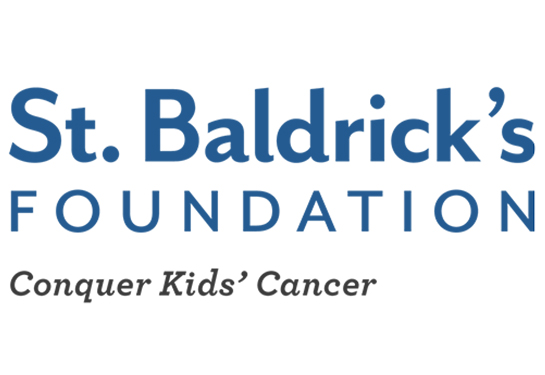UC Davis Health offers Lung Cancer Screening Day on Saturday, Nov. 9
Low-dose lung CT scans available to underscore the importance of early detection during Lung Cancer Awareness Month
November is Lung Cancer Awareness Month, which focuses attention on the No. 1 cause of cancer death for both men and women. Lung cancer is the cause of about 1 in 5 of all cancer deaths. Each year, more people die of lung cancer than of colon, breast and prostate cancers combined.
If caught early, lung cancer can be cured. However, relatively few people are undergoing lung cancer screening. In fact, only about 1% of those eligible in California are getting checked.
Lung Cancer Screening Day
UC Davis Health is making it easier to get screened. The UC Davis Department of Radiology is taking part in national Lung Cancer Screening Day. It is setting aside all day on Saturday, Nov. 9, to offer low-dose CT scans. Additional screening appointments are available Nov. 3 - 8.
“Early-stage lung cancer has no symptoms. Awareness and early detection are the keys to tackling this deadly disease together,” Cardiothoracic Imaging Chief Ahmadreza Ghasemiesfe said.
The lung cancer screenings will be held at the Lawrence J. Ellison Ambulatory Care Center on UC Davis Health’s Sacramento campus. You will need a referral from a UC Davis Health primary care physician before scheduling the scan. If eligible for the screening, insurance coverage, including Medi-Cal and Medicare, should cover the cost. There is also the option to self-pay, although a referral will still be required.
Who is eligible for a lung cancer CT Scan?
- Those between the ages of 50 and 80.
- Those who smoked “20 pack years” and either still smoke or quit within the past 15 years. “20 pack years” equals smoking a pack a day for 20 years or two packs a day for 10 years.
Check with your primary care physician to determine your eligibility and then call UC Davis Health at 916-734-0655 (option 1) to set up an appointment for Lung Cancer Screening Day.
Low-dose CT scans are quick and painless
Low-dose CT scans take less than five minutes to complete and do not require any injections or blood draws. They’re called “low dose” because the radiation delivered is far less than that of conventional CT scans.
“Getting a low-dose CT scan is painless and patients don’t even need to remove their clothes or shoes,” said Chinh Phan, director of the UC Davis Health Interventional Pulmonology Program. “In many ways, low-dose CT scans are much easier than getting a mammogram.”
Getting a low-dose CT scan is painless and patients don’t even need to remove their clothes or shoes. In many ways, low-dose CT scans are much easier than getting a mammogram.”—Chinh Phan, director, UC Davis Health Interventional Pulmonology Program
Tracking suspicious nodules
Cigarette smoking is linked to 80% of lung cancer cases. Early-stage lung cancer has no symptoms, which is why early detection is vital in treating the disease. The scan uses computed tomography to look for lung nodules, which are common in smokers and people living in urban areas.
“Luckily, 90% of the time, these nodules are not harmful,” said Department of Radiology Chair Elizabeth Morris. “Nodules do not mean you have lung cancer and follow-up scans are often used to rule out cancer.”
If cancer is suspected, UC Davis Health leverages the latest technology to diagnose and then treat lung cancer.
Lung-LEAD Clinic
Last year, UC Davis launched the Lung Cancer, Lung Nodule Early Detection Clinic (Lung-LEAD Clinic) to provide “lung-care navigators” who identify patients who are eligible for screening through low-dose CT scans.
If a nodule is considered suspicious, advanced robotic surgical techniques at UC Davis Health are now making life-saving diagnosis and removal of lung cancer possible during a single surgery. In the first year since the Lung-LEAD clinic was launched, more lung cancers are being diagnosed at stage 1 rather than later stages at UC Davis Health.
“This is truly remarkable because we can cure lung cancer at early stages but the first step is getting eligible patients to get the low-dose CT scan,” said David Tom Cooke. He is the chief of the Division of General Thoracic Surgery and also physician-in-chief of UC Davis Comprehensive Cancer Center, which is helping to promote Lung Cancer Screening Day.
“That’s why our Lung Cancer Screening Day is so important. By detecting early-stage lung cancer before symptoms arise and spreads, we can give patients the best possible chance of survival.”
UC Davis Comprehensive Cancer Center
UC Davis Comprehensive Cancer Center is the only National Cancer Institute-designated center serving the Central Valley and inland Northern California, a region of more than 6 million people. Its specialists provide compassionate, comprehensive care for more than 100,000 adults and children every year and access to more than 200 active clinical trials at any given time. Its innovative research program engages more than 240 scientists at UC Davis who work collaboratively to advance discovery of new tools to diagnose and treat cancer. Patients have access to leading-edge care, including immunotherapy and other targeted treatments. Its Office of Community Outreach and Engagement addresses disparities in cancer outcomes across diverse populations, and the cancer center provides comprehensive education and workforce development programs for the next generation of clinicians and scientists. For more information, visit cancer.ucdavis.edu.






